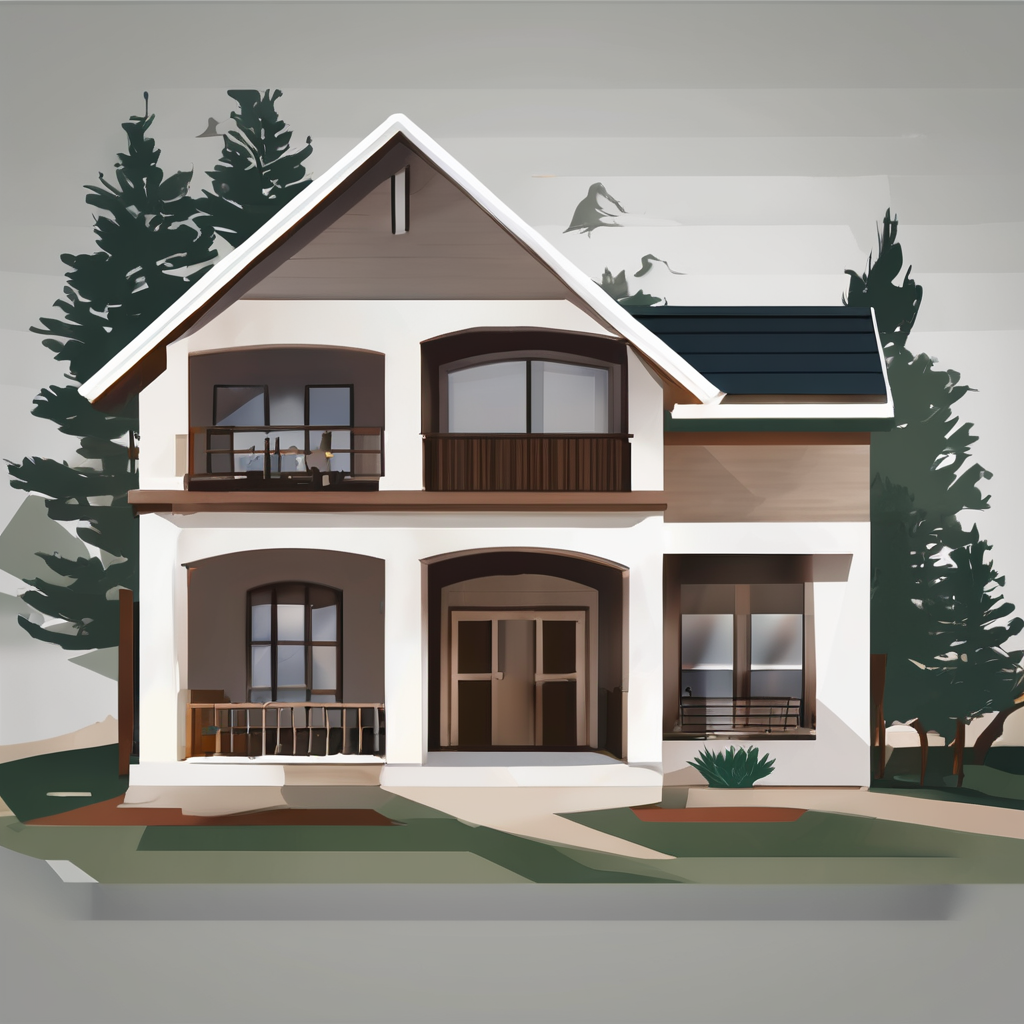Understanding Fixed-Rate Mortgages for Second Homes
Fixed-rate mortgages offer a stable solution for second homebuyers, providing predictability in monthly payments over the loan term. This type of mortgage features an interest rate that remains constant, regardless of market fluctuations, which is advantageous for budgeting. Second homebuyers often prefer this reliability as it safeguards against potential increases in interest rates.
When considering the specific benefits for second homebuyers, fixed-rate mortgages offer significant peace of mind. With a predictable payment schedule, buyers can manage cash flow with ease, making it particularly beneficial for those who are planning to use the second home as a vacation property or rental investment.
Also to read : Smart Questions to Ask When Choosing a Workers’ Compensation Lawyer and Car Crash Attorney
Comparatively, adjustable-rate mortgages (ARMs) may initially present lower interest rates but can lead to varying payments when rates adjust after a specific period. While ARMs might be appealing for those looking to sell or refinance quickly, fixed-rate options mitigate the risk of escalating costs. For second homeowners, especially those carrying primary mortgage responsibilities, this stability is crucial.
In summary, as second homebuyers evaluate mortgage options, understanding the benefits and structure of fixed-rate mortgages is essential, fostering informed, confident decisions in the purchasing process.
Also read : The Complete Compliance Handbook: Transform Your UK Home into a Charming Bed and Breakfast
Eligibility Requirements for Second Home Mortgages
To successfully navigate the mortgage eligibility landscape for a second home, you must be aware of key requirements. A solid credit score is fundamental, often needing to be higher than that required for a primary mortgage. This helps lenders assess your financial reliability.
In addition to credit score, there’s a financial assessment where lenders evaluate your income, debts, and overall financial health. This ensures you’re capable of handling the additional mortgage commitment. Expect to provide comprehensive financial documentation as part of this process.
Down payment requirements are typically more substantial for second homes than for primary residences. Generally, lenders require a down payment of at least 10-20% of the home’s purchase price. This reduces the lender’s risk and demonstrates your commitment to the purchase.
Comprehending these second home mortgage requirements empowers you to prepare effectively. By focusing on improving your credit score and accumulating a sufficient down payment, you’ll enhance your eligibility prospects. Working with financial advisors can further streamline the process, ensuring your financial documents and strategies meet lender expectations. This careful preparation can make all the difference in securing your desired property.
Step-by-Step Application Process
Embarking on the mortgage application process for a second home requires careful preparation. The first step is establishing a solid foundation by gathering the necessary documentation, including proof of income, tax returns, and a detailed account of existing debts. Having these documents ready facilitates a smoother process.
Next, potential second homebuyers should research and understand the application process timeline. Lenders typically require a few weeks to assess your eligibility, compile necessary appraisals, and approve the mortgage. Keeping realistic expectations about this timeline can help mitigate stress.
When it comes to specifics, documentation is crucial. Ensure all your financial records are up to date and accurate. This includes bank statements and proof of any additional income streams. Thorough documentation not only expedites the process but also strengthens your application, showcasing your financial reliability.
Finally, maintaining clear communication with your mortgage officer throughout the application process can prove invaluable. They can provide guidance on additional requirements or documentation that may be necessary, offering clarity and reducing potential delays. Being proactive and informed not only simplifies the experience but also enhances your chances of securing the mortgage needed for your second home.
Addressing Common Concerns and FAQs
Purchasing a second home can raise many common concerns among buyers. Understanding these intricacies is vital for making informed decisions. Frequently asked questions centre around mortgage eligibility, rates, and long-term costs. Are fixed-rate mortgages advisable? Yes, especially if stability in monthly payments is desired, as they provide predictability and protection against interest rate fluctuations.
Misconception often arises regarding the necessity of a higher down payment on second homes. It’s typically required—often between 10% and 20%. This reflects lenders’ efforts to mitigate risk. Buyers should plan accordingly to meet these expectations.
Another question concerns managing costs beyond the mortgage itself. Fixed-rate mortgages ensure consistent payments, but budgeting for maintenance, taxes, and insurance is crucial. Buyers often overlook these ongoing expenses and hidden fees in transactions.
Second homebuyers often worry about credit scores’ impact. A robust credit score is essential, reflecting reliability and improving loan conditions. Consult resources, like lenders or financial advisors, to clarify doubts and provide guidance. They can offer advice tailored to your situation, enabling a smoother purchasing process. Leveraging these resources reduces uncertainty, making the journey towards your second home more manageable and less daunting.
Comparing Lenders for Fixed-Rate Mortgages
The world of mortgage lenders is vast, offering numerous options for those seeking fixed-rate mortgages. When choosing a lender, consider several critical factors. Primarily, examine the interest rates. Although fixed rates offer stability, different lenders provide varying rate offerings. Ensure you’re getting a competitive rate by comparing fixed-rate mortgage options across companies.
Investigate lender reputation. Customer reviews provide insights into the lender’s reliability and service quality, influencing your overall experience. A lender known for excellent customer service can simplify the mortgage process.
Consider the lender’s flexibility in terms of repayment options and other terms. Individual needs differ, and understanding which lender can best accommodate those needs is crucial.
Lastly, some mortgage lenders specialise in second homes, offering tailored solutions that address the unique needs of second homebuyers. Engaging with a lender experienced in this area can provide added assurance. To find the right fit, researching lender options both locally and nationally is recommended, as it broadens the scope of available offers and could lead to more favourable terms. This comprehensive approach to selecting a lender helps ensure the best possible outcome for your fixed-rate mortgage.
Understanding Potential Costs Involved
When considering a second home purchase, understanding the complete scope of costs is paramount. Fixed-rate mortgages provide consistency in monthly payments, yet several additional expenses accompany these loans.
The initial step is recognising the various mortgage costs. Besides principal and interest, you might encounter fees for application, origination, and closing, which can significantly increase the initial outlay. Often overlooked are hidden fees associated with second home transactions, such as appraisal fees, credit report fees, and sometimes even fees for inspections. Carefully reviewing your loan estimate can help identify these charges in advance.
Beyond the mortgage, budgeting for ongoing costs is crucial. Regular expenses such as property taxes, insurance, and maintenance must be considered. Unlike primary residences, tax deductions for second homes are often limited, impacting long-term affordability.
Owners of vacation properties, deemed as second homes, should also account for potential seasonal fluctuations in maintenance costs, like necessary repairs or updates. Planning for these additional expenses ensures you’re prepared for the full financial responsibility of a second home. Engaging with financial advisors and conducting thorough research into comparable properties can further aid in crafting an accurate budget.
Tips for Securing the Best Fixed-Rate Mortgage Rates
Securing the best mortgage rates on a fixed-rate mortgage for your second home involves a strategic approach. The following insights can enhance your chances of securing more favourable rates.
Preparation and timing are paramount. Begin by strengthening your financial profile; elevate your credit score and reduce outstanding debts. Lenders often offer better rates to borrowers who demonstrate financial reliability. Moreover, timing your application strategically can be beneficial. Interest rates fluctuate, so applying during periods of lower rates can lead to considerable savings.
Negotiation is another powerful tool. Approach multiple mortgage lenders and obtain various offers. Use these offers as leverage to negotiate better fixed-rate mortgage rates with your preferred lender. Don’t hesitate to remind lenders of your solid financial standing and their competitive offers.
Utilise online resources to track and compare rates regularly. Websites can provide daily insights into market conditions, helping you pinpoint optimal times for locking in rates. Engaging with mortgage brokers can also provide access to exclusive deals not visible in traditional channels.
Implementing these tips not only aids in securing competitive rates but also empowers you with confidence as you navigate the mortgage landscape.



